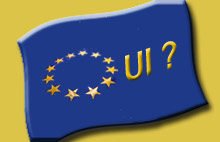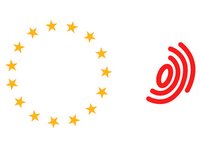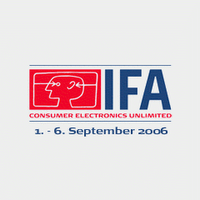
The District Court in The Hague, Netherlands ruled on September 13 mainly in favor of Warner Lambert (Pfizer) in two judgments against Ranbaxy,
one decision related to EP patent 0 247 633 and the
other decision on EP patent 0 409 281. The judgements are part of an ongoing patent litigation between Warner-Lambert (Pfizer) and Ranbaxy, an India based drugs manufacturer.
Center stage of this litigation is the highly successful cholesterol-lowering drug Lipitor, consisting of “atorvastatin”, an enantiomeric substance, containing a dihydroxyheptanoic acid chain, suitable to inhibition of cholesterol synthesis in the human body. The District Court The Hague held Warner-Lambert's
European Patent 0 247 633 in the Netherlands to be valid. Warner-Lambert's
European Patent 0 409 281 — covering the calcium salt of atorvastatin which had been challenged by Ranbaxy — was held to be invalid in the Netherlands.
Pfizer has applied for a number of patents related to the inhibition of cholesterol synthesis, two of which are being dealt with in these two court decisions. The first patent, EP 0 247 633 was granted on 30 January 1991, upon an application as filed on 29 May 1987, with a priority claim as of 30 May 1986. The '633 patent expires in 2007. The second patent, EP 0 409 281 was granted in 2001, upon an application as filed in 1990, with a priority claim of 21 July 1989. The '281 patent expires in July 2010. Pfizer applied for Supplementary Protection Certificates ("SPCs") in (most of) the designated states in Europe on the basis of the '633 patent for Lipitor. In The Netherlands, Pfizer obtained an SPC expiring November 5, 2011.
Ranbaxy argued that Pfizer’s SPCs are invalid as they are based on the ‘633 patent which patent – according to Ranbaxy - does not cover atorvastatin. Ranbaxy’s basic position is that atorvastatin is an enantiomeric substance, and that the scope of the '633 patent is limited to racemates only. Ranbaxy defended that support of their view could be found in the patent file history of Pfizer's, e.g. correspondence by Pfizer’s patent attorney with the Danish Patent Office in the Danish application for the national counterpart of the '633 patent. Ranbaxy further supported this claim by pointing to Pfizer's own statements in the prosecution stage of the '281 patent. In the '281 prosecution, the '633 patent was considered to be the closest prior art.
Ranbaxy and Pfizer are involved in disputes related to the (counter parts of the) '633 patent and the '281 patent on a world-wide basis. Actions are pending in the United States, Australia, the United Kingdom, and The Netherlands, as well as in other countries. Ranbaxy has been quite successful in revocation of the (counter parts of the) '281 patent. In view of the '633 patent as the closest prior art, the '281 patent has been nullified for lack of inventive step in multiple jurisdictions. However, Ranbaxy until now appears to be less successful in the nullification of the '633 patent and/or the corresponding SPC, which is Ranbaxy's primary interest in order to be able to likewise market an atorvastatin product like Pfizer's Lipitor.
In several jurisdictions, Pfizer's confirmation of Ranbaxy's view with respect to the scope of the '633 patent has been excluded as evidence. In these proceedings, the scope of protection of the '633 patent has been assessed from the point of view of the skilled person only, while any and all representations limiting the objective scope as made by the patentee have been disregarded. For instance in the UK, Pumfrey J was very explicit clear in his judgment of 12 October 2005 regarding the scope of protection of the '633 patent, by ruling:
“At the outset of the trial, I ruled that Ranbaxy could not rely upon certain documents, largely representations made to certain patent offices, in which persons acting for Warner-Lambert had made representations about the disclosure of '633 much the same as that for which Ranbaxy now contend.
I excluded the documents because I considered that they were not admissible on the question of construction”.
Similarly, in the Dutch proceedings, the Dutch Patent Office ("Octrooicentrum Nederland") was asked to provide its expert opinion on inter alia the question whether the skilled person would understand the '633 patent to exclusively cover racemates (and therefore not enantiomers). Octrooicentrum Nederland confirmed in its expert report of 28 March 2006 that it did not consider the file history of the '633 patent, let alone the '281 patent, - and therefore would consider the "objective scope" only - reasoning:
"Octrooicentrum Nederland in the first place stresses that the question,
which must be answered in this expert report, is how the skilled person will
understand patent EP '633 and not what Warner has stated in that respect in any
proceedings."
The District Court The Hague followed this reasoning of the Dutch Patent Office . The result is that the '633 patent is being considered as the true “basic” patent (within the meaning of Article 3 sub a of Regulation 1768/92/EEC) covering the Lipitor product. The Court disregarded evidence filed by Ranbaxy – all based on prosecution file history of the'633 Danish counter part and the '281 patent - in assessing the scope of protection of the '633 patent.
In most other European countries, like the UK, France and Germany, consultation of the prosecution file history is excluded as evidence, mainly from the point of view that it cannot contribute to the assessment by the skilled person of the scope of protection. In The Netherlands (like in some other smaller jurisdictions), quite a liberal attitude has been adopted in the past vis-à-vis consultation of the prosecution file history in assessing the scope of protection of a patent (often compared to the US “file history estoppel”).
The ruling means that Ranbaxy is prevented from launching its drug before Lipitor's basic patent EP ‘633), which expires in November 2011.
See also "Lipitor battle in the Netherlands—District Court invalidates Warner-Lambert’s EP ’281 and holds EP ’633 infringed", Klaas Bisschop, Ruud van der Velden, Journal of Intellectual Property Law & Practice, 2006, Vol. 1, No. 13 (December 2006)












 Charlie McCreevy, Commissioner for Internal Market and Services, gave a
Charlie McCreevy, Commissioner for Internal Market and Services, gave a 




